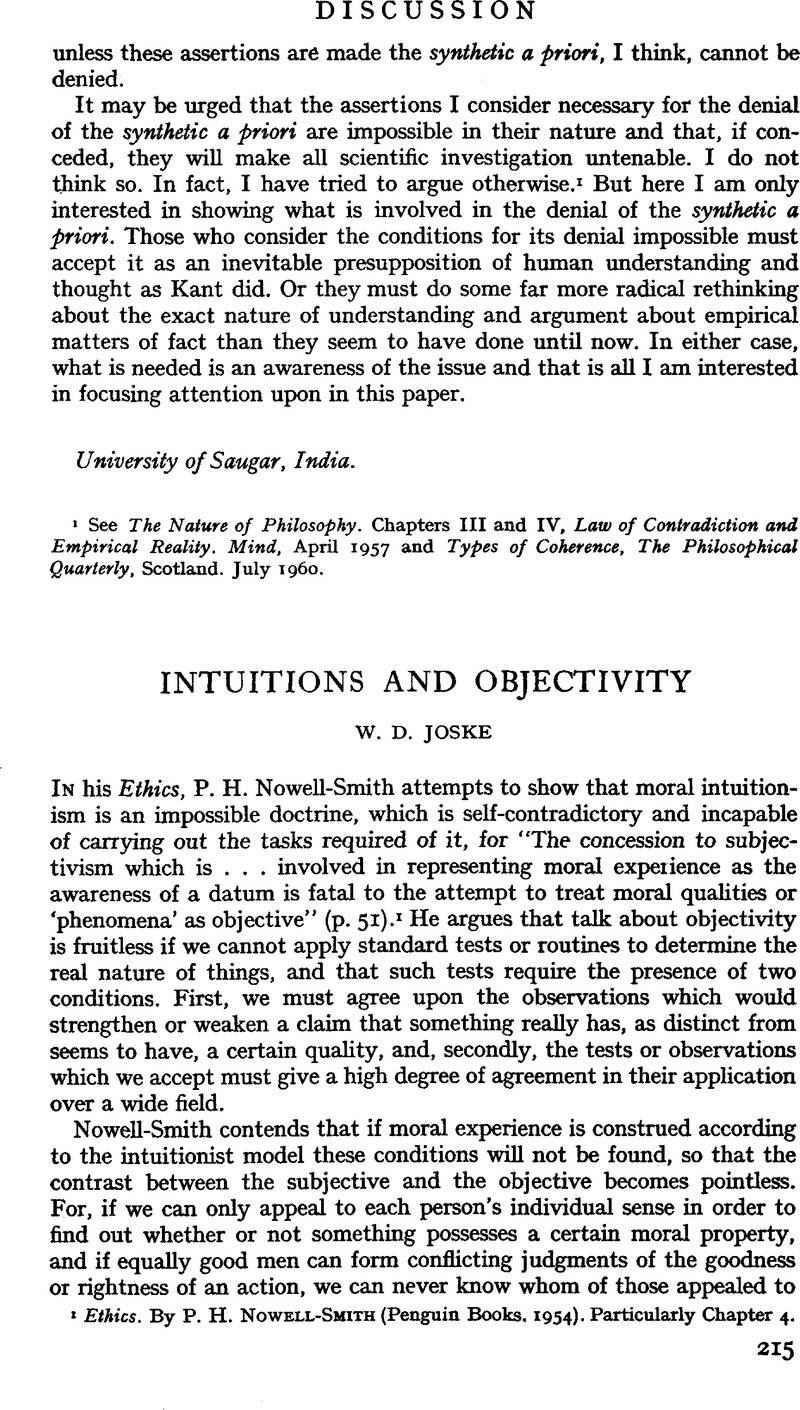No CrossRef data available.
Published online by Cambridge University Press: 25 February 2009

page 215 note 1 Ethics. By Nowell-Smith, P. H. (Penguin Books. 1954).Google Scholar Particularly Chapter 4.
page 216 note 1 I do not think that a consideration of the logical grammar of the paradigm cases of property words can do more than show that the property analogy is misleading. Toulmin's anti-objectivist argument (Reason in Ethics, Chapter 2) falls down because it assumes that the question “Is X a property word?” admits of a definite answer. His own examples have shown that there are different sorts of property words, that the notion of a property is vague.